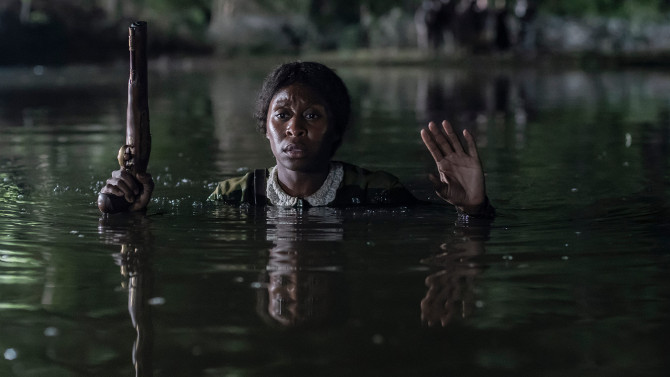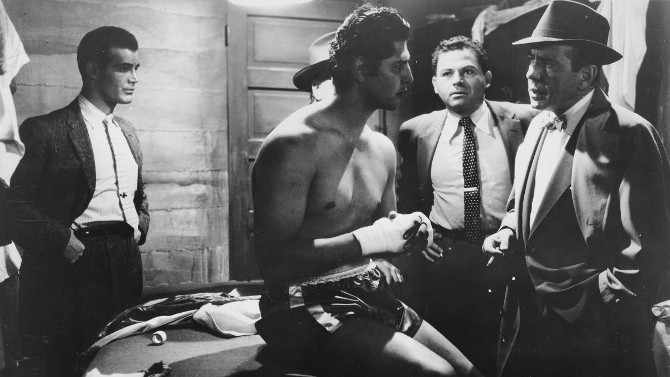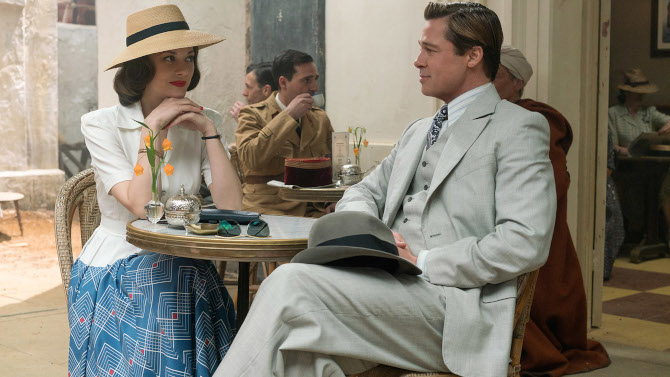
Déjà vu Dalliance
Channeling the mesmeric movies churned out by the studio system back in the 1930s and 40s, Allied (2016), directed by Robert Zemeckis, channels the likes of Morocco, Casablanca, Across the Pacific, Gilda, To Have and Have Not, and numerous others – attempting to find a spark from the classic themes of melodrama, romance, suspense and the epic nature of the annals of the cinematic past, with quite successful results. Set the year Casablanca and Across the Pacific were released – 1942, the story in fact starts in Morocco, with recently parachuted in Canadian spy Max Vatan (Brad Pitt) meeting up with another undercover agent, Marianne Beauséjour (Marion Cotillard), who will be pretending to be his wife.
-
First Names Only, Please
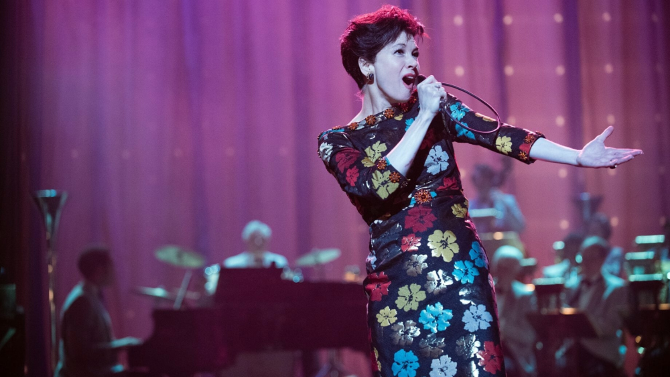 JudyHarrietJanuary 31, 2020
JudyHarrietJanuary 31, 2020The Academy Award season is creeping upon us again. . . and as I am running out of time, I’ve decided to combine and condense two reviews that feature stellar Lead Actress performances of 2019 (that also happen to be about real women), Rupert Goold’s Judy and Kasi Lemmons’ Harriet. Judy tells the tragic story of Judy Garland, flashing back and forth between the way she was mistreated during the filming of The Wizard of Oz, and how that, along with poor life choices, brings her to a point where she is forced to take an extended stay in London in 1968 (away from her children – who she dearly loves) in order to earn enough money to be able to purchase a home (so that she might win custody against her ex-husband).
-
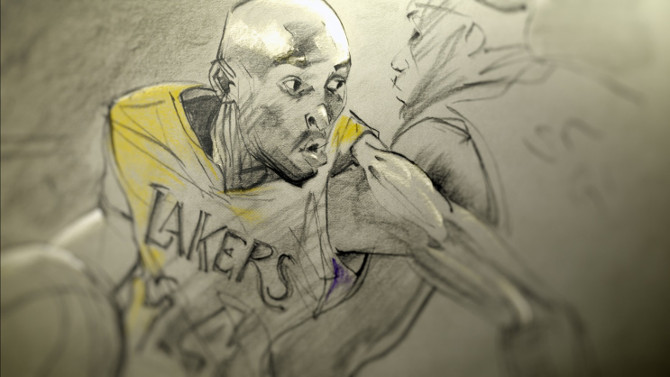
Basketball Your Eyes Out
Dear BasketballJanuary 27, 2020It is funny what passes through your brain when something as monumental and horrible as Kobe Bryant’s unexpected death is heard (even more heartbreaking that his thirteen year old daughter Gianna, and seven others died in the helicopter crash). Logic and reason no longer control your mind, and it is as if a movie reel flashes before your eyes. For me, I immediately thought of a day almost fourteen years ago to the day when the Toronto Raptors seemed to have things in complete control (up fourteen against the Los Angeles Lakers at half). It was January 22nd, 2006, the day Kobe took over – almost forty-two minutes, twenty-eight field goals made (forty-six attempted), seven threes. . . a total of eighty-one points (that helped further his legend – the second highest total ever behind only Wilt Chamberlain’s one hundred). Then, the horrific 2011 Lokomotiv Yaroslavl plane crash flashed before me – 44 dead, including former NHL superstar Pavol Demitra (who I knew). You think of Jordan, Shaq, the championships, and the colossal loss. . . in complete pain for his wife, daughters and parents (who must now try to pick up the pieces after this tragic accident). You start to hear the reaction coming out – shock and disbelief. . . perhaps Tiger Woods’ forceful “excuse me” upon hearing the news from his caddy after finishing his round of eighteen sums that up nicely – for it seems surreal.
-
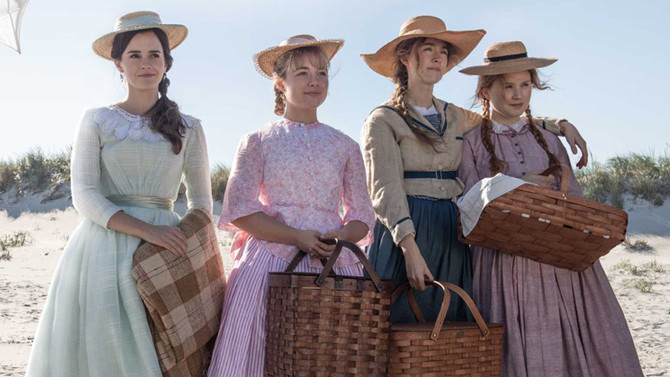
Marching On
Little WomenJanuary 24, 2020You just can’t beat a good idea. . . which is why most iconic stories have found their way onto the silver screen more than once – case in point, Little Women. Reuniting the director/actor dream team of Greta Gerwig and Saoirse Ronan just two short years after their success with Lady Bird, this 2019 effort follows adaptations released in 1917, 1918, 1933, 1949, 1994 and a 2018 tv movie (and no less than eight television versions) – I’ll leave it up to you as to what that proves (perhaps that classics are eternal. . . or maybe, that Hollywood can no longer muster up even one original idea). Gerwig, adapting one of her favourite novels (written by Louisa May Alcott), creates a visually striking world, from its perfectly framed opening shot to its closing scenes, the lush, New England landscape a brilliant backdrop for this nineteenth century tale. Each home, architectural flourish, costume choice, and colour selection painting a nuanced, impressionist piece of artwork.
-
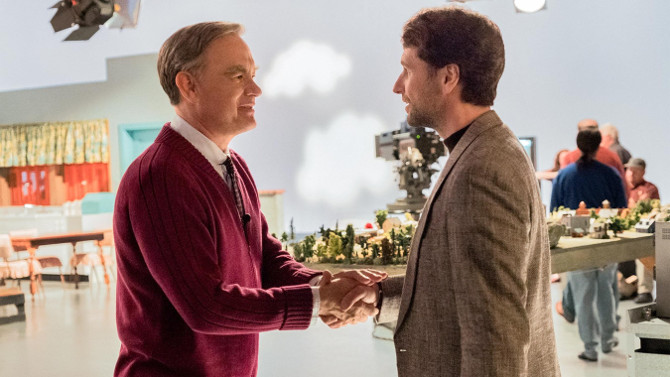
Take Note
A Beautiful Day in the NeighborhoodDecember 20, 2019Every once in a while, a feel good movie is just what is needed. Like a hot cup of cocoa, it can warm the heart, enliven the spirit, and bring comfort to the troubled brain. Just what the doctor ordered this 2019, A Beautiful Day in the Neighborhood, directed by Marielle Heller, reminds us just how important a man like Fred Rogers is – even eighteen years after his final episode aired (and sixteen years after his death). Based upon the article “Can You Say... ‘Hero’?” by Tom Junod (published in the November 1, 1998 Esquire magazine), it is a story that juxtaposes the harsh realities of an embittered, emotionally angry investigative journalist, Lloyd Vogel (Matthew Rhys – The Americans), with the kind-hearted soul of PBS childhood icon Mr. Rogers (Tom Hanks), it just happens that Lloyd’s editor, Ellen (Christine Lahti), feels like it is the perfect time for the man to pull back on the reigns and do a lighter bio-piece on the beloved man.
-
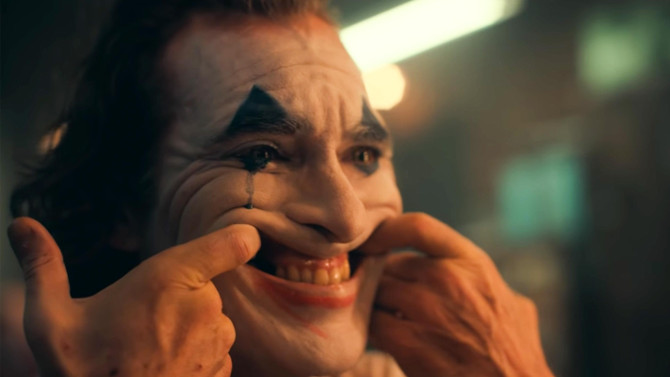
Tears of a Clown
JokerNovember 10, 2019As you read this review, my recommendation would be to go to Youtube and search for the song “Smile” (there are several versions, I would recommend Nat King Cole’s) – and listen to it in the background. Playing a part in both the trailer and film Joker (2019), the poignant lyrics (by John Turner and Geoffrey Parsons) tells you that, “If you smile through your fear and sorrow Smile and maybe tomorrow You’ll see the sun come shining through For You.”, even while the beautifully melancholic melody (written by Charlie Chaplin) tells you a wholly different story. . . one of a smiling clown truly hiding a frown. Also look for a special screening of Chaplin’s Modern Times that plays a part in the film – The Tramp playing the clown despite the crippling burden people and society have put on him.
-
Star Pick with George Chuvalo
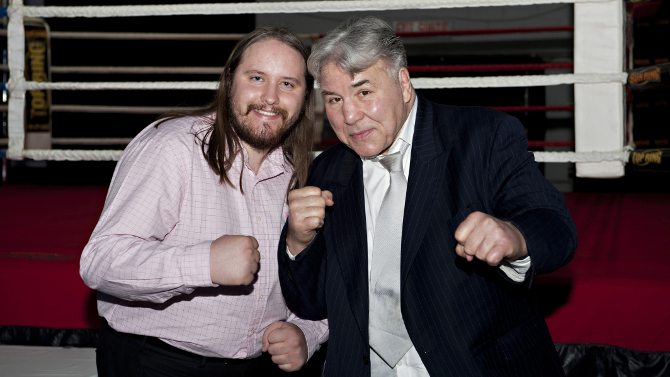 Ring RacketThe Harder They FallSeptember 4, 2019
Ring RacketThe Harder They FallSeptember 4, 2019Arguably the greatest Canadian pugilist of all-time, George Chuvalo, standing six feet tall, weighing in at 240 pounds, and with a reach of seventy-one inches, was also graced with an iron jaw. Part of ninety-three professional bouts, Chuvalo never once fell to the canvas – and when you look at the foes he fought, that is one impressive statistic. With a record of 72-19-2, he was a five time Canadian champ, and two time World Heavyweight contender (the first against Ernie Terrell in 1965). Perhaps his two greatest fights were against Muhammad Ali (in 1966 and 1972) – though some may point to the 1965 Fight of the Year versus Floyd Patterson. Given only seventeen days to prepare for their first match, people (along with Ali) didn’t give Chuvalo much of a chance. . . yet, 12 rounds in, the man was still standing (for the first time ever in Ali’s career), the pair going the full 15. Yet, after the fight, Ali claimed, “he is the toughest fighter I ever fought” – Chuvalo earning the man’s respect. And, there is no doubt in Chuvalo’s mind about the fight, for he has long said, “when it was all over, Ali was the guy who went to the hospital because he was pissing blood. . . Me? I went dancing with my wife”.

